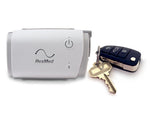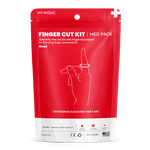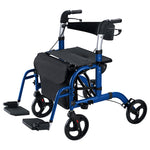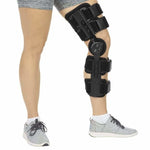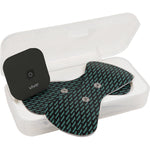Your cart is empty
Looks like you haven't added anything to your cart yet
Getting the Most Long-Term Bang on Your HSA Buck!
Did you know that you can use your HSA to save for retirement? It already has so many wonderful tax benefits, thus using it as a savings vehicle could help you add an extra few thousand dollars to your retirement so you can be enjoying those diamond years that much more! Let's go on a journey together and learn how to do so!

Hello friend! Are you ready to learn about HSAs? Health saving accounts are an incredible way to save money on taxes and they come with so many benefits. (Read more about the triple-tax advantage here!) However, what if I told you not all these benefits have to be for the immediate future? The wonderful news is, your HSA can help you save for retirement too! You might be saying “tell us how it works Hoolio! We must know!” Well fear not, friend. That’s what I’m here to do!
HOW CAN MY HSA SUPPORT WHAT MY RETIREMENT ACCOUNTS ALREADY DO?
Let’s be honest. In your old age, you are probably going to rack up more medical expenses than in your youth. That’s how aging works. Well, the term “medical expenses” should immediately bring you to HSAs, because that’s where they shine brightest!
It can be tricky trying to plan just how much money you will need in retirement, but it is estimated that a couple will spend anywhere around $50,000 a year. We’re talking housing, groceries, travel, healthcare, etc. Your accounts have to stretch a lot of different ways and for quite a bit of time, too. So why use that precious money on doctor visits, prescriptions, vision, and dental if you don’t have to?
The beautiful thing about your HSA is that it can be used as a cushion to help your retirement account. You’ve got yourself a triple tax-advantage that has allowed you to save on taxes for years. How about using your HSA funds to cover medical expenses while your retirement accounts take care of all the other stuff? You’d save a lot of money that way considering that withdrawals from an HSA for eligible medical expenses is not taxed a single penny, woot woot, or should I say hoot hoot!
SAVING WITH YOUR HSA
Using your HSA as an essential part of your retirement plan requires careful planning and saving. If you want the compounding power of an HSA to work at its maximum, you will need to avoid tapping into it unless absolutely necessary. If you end up needing to pay out-of-pocket expenses, consider using other sources of personal savings first.
Of course, this means you must have a fairly robust emergency fund in addition to making sure you are maxing out your HSA contributions each year, but remember what the end goal is: the sweet benefits your tax-free money will offer in those wonderful years of retirement.
That being said, however, maybe you can’t afford not using your HSA on your high deductible insurance plan. No need to worry, friend! HSAs have many different benefits and even if you were to use the money as fast as you put it in there, you are still saving thousands of dollars in tax money. The beautiful thing is, you get to decide when you want to enjoy the benefits of your tax-advantaged account!
WHAT IF I NEED TO MAKE A NON-ELIGIBLE WITHDRAWAL?
This is a legitimate concern! What if you have every intention of saving all you can in your HSA for retirement, but something goes horribly awry, and you find yourself in need of funding and your expense does not fall into the eligibility list? The good news is, your HSA offers a bit of grace!
You are allowed to withdraw your money at any time you want, but if it is for a non-eligible expense and you haven’t yet reached the age of 65, there are some consequences. The withdrawal is subject to a 20% penalty, and in addition is taxed as income (much like a traditional 401(k) post-retirement). It may be a hefty cost, but if you are in a tight pinch it could be just what you need.
However, after age of 65, things get more interesting, Once you reach retirement age, you can make withdrawals even for expenses that don’t fall under the eligibility list and no penalty is attached. The only consequence is the income tax, (much like a 401k). Is that retirement benefit you smell? It sure is! HSA money post-retirement doesn’t necessarily HAVE to be used for medical expenses; you can be a little more free with it if you desire. Yet another reason to use it to save for retirement.
THE FINAL COUNTDOWN
Let’s consider another scenario: you are fast approaching retirement age and you want to stuff every possible dollar into your HSA to max out the tax savings. If this is you, then this feature of an HSA will greatly interest you! There exists what is termed “the catch-up rule”, and it allows individuals who are 55 or older to contribute an additional $1,000 a year to their HSA. How exciting is that?
The design of this feature is to help you keep pace with your age and your increasing medical care needs so you can still work toward saving for retirement and keep yourself as healthy as can be.
HSAs ARE KIND OF THE BEST, SO WHY NOT GO BOSS MODE?
If you have an HSA, you have a once in a lifetime opportunity (and I mean that quite literally, you can only do this once in your life!) to roll funds over from an IRA to an HSA. Why on earth would you want to do that you ask? Well, think about it. With an HSA, you have a plethora of tax savings. You contribute tax-free, you withdraw tax free, and any/all growth is tax free. With an IRA (depending on if you have a traditional or a roth), you have to pay taxes either before or after withdrawing. If you put your money in an account that saves you from taxes, then you really are making the most of your retirement money.
The rules and regulations for this rollover can get a little complicated, but just remember that awareness is the first step to understanding how you can take advantage of your tax savings.
First off, as mentioned earlier, this rollover can only be done once in a lifetime, and it is limited to that year’s max HSA contribution, so be sure to carefully plan your contributions around your employer’s so you aren’t limiting yourself accidentally. It also is significant to note that you cannot contribute to your IRA the year of the rollover.
A second important aspect to consider is that rollovers cannot be made from an employer-based account such as a 401(k), 403(b), or 457(b). If that is the retirement account you use, then you will need to perform a rollover to an IRA first, then to an HSA. Remember though, traditional IRA funds are taxed upon withdrawal, so it would be wise to use this type of account. A roth IRA is taxed upon contribution with tax-free withdrawals, so it wouldn’t help much to put that money into an HSA.
Hold on to your wing feathers. It gets even more exciting!
There is a required testing period for IRA to HSA rollovers. In order to properly “pass” the testing period and make the rollover successful, you need to be enrolled in an HSA-eligible insurance plan at the time of the rollover and stay enrolled in said plan for at least 12 months from the rollover date. That requires that you hold on to your high deductible health plan (HDHP) for at least a year post-rollover.
If the testing period is failed (you become un-enrolled in an HDHP at any given point during the year of the rollover), then the entire distribution will be subject to income tax with an additional 10% penalty added on.
This becomes very important when approaching Medicare enrollment.
Make sure that you plan ahead at least 12 months before you enroll in Medicare at age 65, because Medicare is not an HDHP. This would make you unable to contribute to an HSA, thus failing the testing period.
Does your head hurt yet? If you are anything like me the first time I learned about this, then maybe it does just a little.
Well, here’s the most important takeaway: You can have even more HSA savings with just a little bit of planning. And most people plan ahead for retirement, so you should end up alright in the end!
MISSED THE WINDOW FOR THE ROLLOVER?
As I often say, fear not friend! If you made the rollover too late and you enrolled in Medicare before the 12 months was up, then there is still an opportunity to get your money into a tax-advantaged account. You can take a qualified distribution from your IRA and contribute those funds to the HSA.
You’ll have to pay taxes on the withdrawal, but at least any growth you make from it and your second withdrawal will be tax-free, so it should all cancel out in the end. Just remember that performing the rollover directly from your IRA to HSA will help you avoid the tax withholdings of the IRA distribution.
So there you have it: how an HSA can help you save for retirement! I know it seems like a lot, so if you have any questions, feel free to give me a hoot down in the comments below! You have the power to be the hero of your finances, so don’t let yourself get down, okay? Onward to retirement savings in our HSA limousine!!
What are you most excited about for retirement?
Sincerely,
Hoolio
- Choosing a selection results in a full page refresh.


